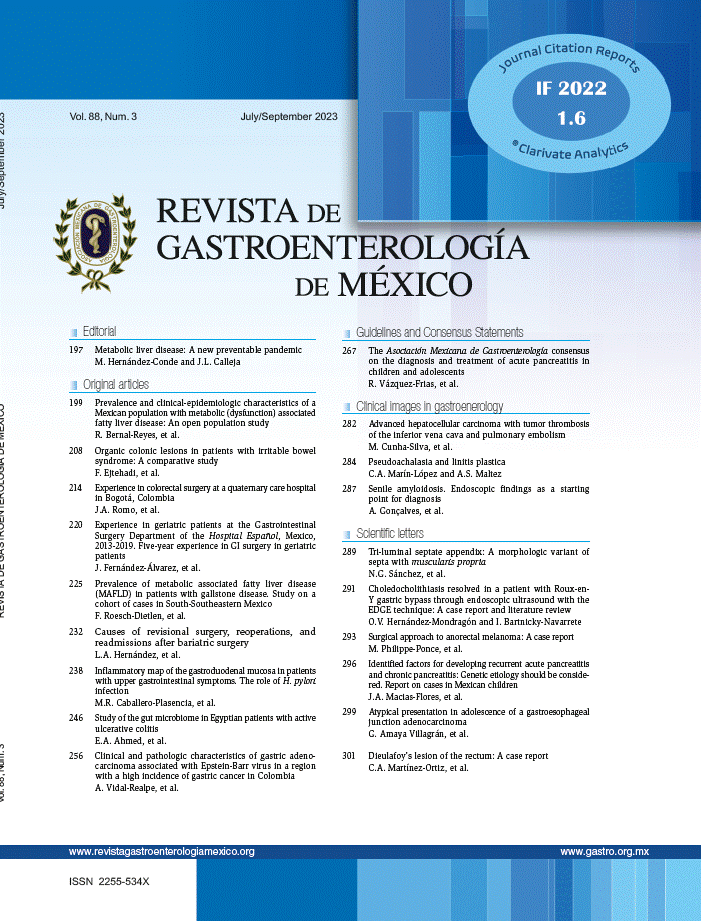We wish to thank Dr. Ng for his interest in our case report of two patients that developed hepatocellular carcinoma (HCC), following therapy with direct-acting antivirals (DAAs). As a case report, we did not intend to establish causality1. As we discussed in our article, we agree that there appears to be no link between DAA therapy and de novo or recurrent HCC. This is supported by a recent meta-analysis: Ma et al.2 evaluated the incidence of HCC in 276,848 hepatitis C virus (HCV)-infected patients treated with IFN or DAA-based therapy. They found that treatment with either agent reduces the risk of developing HCC in patients with chronic HCV.
HCV causes the cell to develop adaptative mechanisms to stress that facilitate carcinogenesis. Exosomes contain miRs that are involved in viral replication and carcinogenesis. HCV-infected liver cells produce high levels of miR-122. Treatment with DAAs causes a decrease in miR-122 and its loss is associated with HCC3. HCV also causes derangements in the immune response. The liver contains a high number of mucosal-associated invariant T (MAIT) cells. HCV upregulates immune activation markers, such as HLA-DR, CD69, and PD-1, which leads to chronic immune activation of those cells and immune exhaustion. DAAs decrease the levels of IL-18, one of the cytokines that stimulates MAIT cells, causing a decrease in intrahepatic inflammation and cytotoxicity. However, even after a virologic cure, MAIT cells continue to be dysfunctional. Other studies showed that memory CD8 T cells produced less IFN-γ and TNF-α following antigen challenge, in patients with HCV. Like MAIT cells, CD8 T cells maintain an exhausted phenotype after cure. Moreover, intrahepatic regulatory CD4 T and T-reg cells are expanded in the blood and liver of patients with chronic HCV and remain unchanged after DAA therapy4. These findings suggest that HCV causes epigenetic and immunologic changes, independent of DAA-induced cure, that predispose patients to HCC.
We agree that a more detailed past medical history could have been helpful for the reader. Our patients’ past medical history was negative for drug use, high-risk sexual activities, and diseases needing blood transfusions. Following the most recent guidelines5, both of our patients tested negative for hepatitis B virus (HBV) and HIV. Regarding the attainment of sustained virologic response (SVR) and the development of HCC, we diagnosed HCC recurrence before finishing DAA therapy in the first patient and de novo HCC 3 months after finishing treatment in the second patient. We consider that HCV was cured in both patients, as they had an SVR. We believe that the irreversible changes caused by HCV infection were responsible for the development of HCC in our patients.
Finally, most of the available evidence points toward an end to the controversy regarding the association between DAAs and the development of HCC.
Ethical considerationsInformed consent was obtained from both patients prior to publication. This manuscript does not contain any patient information that might enable their identification. The utilization of de-identified patient data for the original and related manuscripts was approved by the ethics committee of the Instituto Nacional de Ciencias Médicas y Nutrición Salvador Zubirán.
Author contributionsRTS and VMPZ were involved in chart reviewing. MSR, RTS, VMPZ, MDH and IGJ were involved in the planning, drafting, writing, and revision of this manuscript.
Conflict of interestThe authors declare that they have no conflict of interest to disclose.
Please cite this article as: Servin-Rojas M, Tapia-Sosa R, Páez-Zayas VM, Dithurbide-Hernández M, García-Juárez I. Respuesta a Alexander Ng. Réplica a la Carta al Editor. Rev Gastroenterol Méx. 2022;87:126–127.



